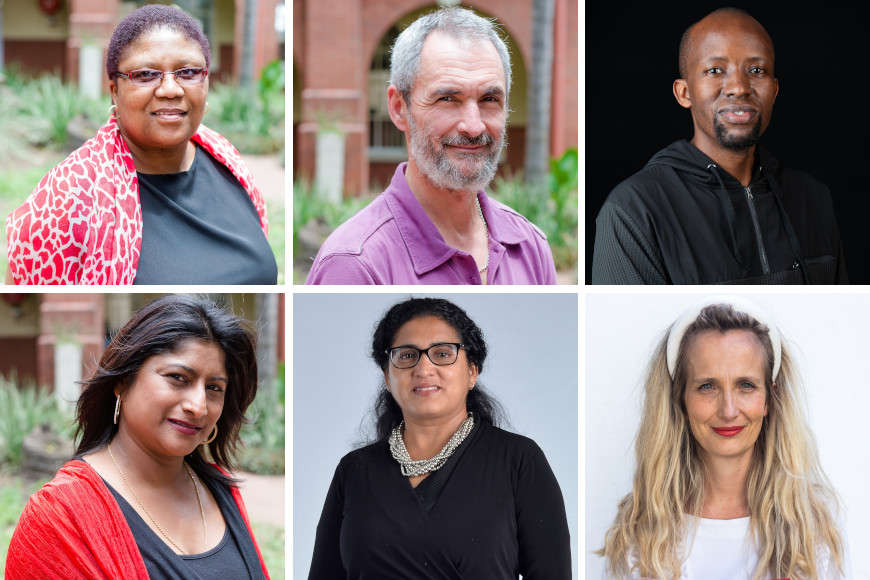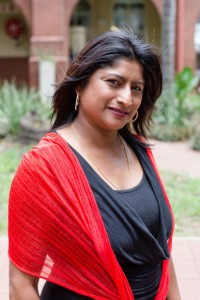The Durban University of Technology’s (DUT’s) Faculty of Arts and Design staff reflect on the coronavirus pandemic which has caused enormous challenges to so many people around the world and South Africans have not been immune to them. This is definitely a time of disruption in our country; this disruption has brought grief to some, financial difficulties to so many and many changes in the way we go about our daily lives.
Andile Dube, DUT Faculty of Arts and Design Communications Officer asked six DUT staff to share how the coronavirus has affected them and how they have been dealing with its effects.
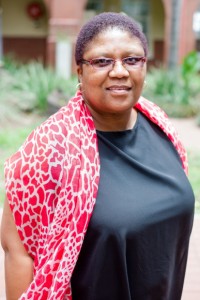 Dr Maleshoane Rapeane-Mathonsi (Research Co-Ordinator: Faculty of Arts and Design)
Dr Maleshoane Rapeane-Mathonsi (Research Co-Ordinator: Faculty of Arts and Design)
Were you panicked when news of the virus broke in February?
Yes, especially because I was one of the first people who were asked to go and test, due to possible exposure.
How has the coronavirus affected you in your professional and personal life?
I have been working from home, very successfully. No distractions, unnecessary visits, etc. But I miss some of the facilities, e.g. files with information.
What has this period taught you about yourself and life?
Nothing is guaranteed. Appreciate my family and friends daily, not with Christmas gifts at the end of the year.
What do you miss the most before the coronavirus?
TRAVEL, I LOVE IT. Visiting friends and family.
What message of encouragement would you give to your students and colleagues right now?
Please stay safe, always read messages from the DUT COVID-19 task team, and play your part.
Together, we can do it, if we don’t put our guard down.
Dr Chris De Beer (Head of Department: Fine Art and Jewellery Design & Manufacture) 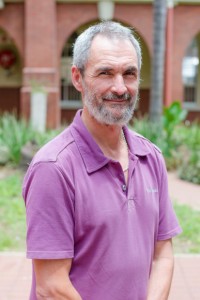
Were you panicked when news of the virus broke in February?
I did think it would be worse than it turned out. I thought that the townships would be affected very badly.
How has the coronavirus affected you in your professional and personal life?
It has made me re-evaluate my priorities. I realised I do not spend enough time with myself, I am giving all my creative energy to people around me.
How have you been dealing with the effects of the coronavirus?
I’m just more careful when mixing with people, very mindful of the viral load I am exposed to.
What has this period taught you about yourself and life?
I will need to refocus and look for more fulfilment within and in my surroundings. I realise that I have been influenced by outside forces more than I care to admit.
How do you think the coronavirus has affected the arts and what do you think artists can do to adapt to the new normal?
I think artists are creative and sensitive people that thrive on situations like this. It provides grist for the mill.
What message of encouragement would you give to your students and colleagues right now?
“Present fears are less than horrible imaginings.”
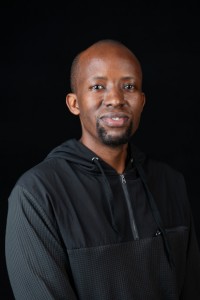 Khaya Mchunu (Lecturer: Fashion and Textiles Department)
Khaya Mchunu (Lecturer: Fashion and Textiles Department)
Were you panicked when news of the virus broke in February?
There was definitely panic on my side. I think the worst feeling was that things were never going to be the same again. I had heard of previous outbreaks like swine flu, SARS and Ebola, but the fact that we recorded the first case in the country — even scarier, in the province — definitely caused a bit of panic for me. I remember the messages I got from friends and family when the first case was announced on the news. It showed that they cared, but it did also cause panic, knowing how rapidly the virus is said to spread.
How has the coronavirus affected you in your professional and personal life?
During the earlier days of the first COVID-19 positive case, I was supervising a Master’s student who was close to completion and preparing for her exhibition because she did a part-thesis, part-practical. She soldiered on, finishing the work and getting her creative output ready for an opening. We publicised the event on social media as well as the university’s Pinboard, then boom! As the exhibition was nearing, the first case was reported and the faculty took the step to stop lectures. Sibongile Milisi’s exhibition got locked up for months. As a supervisor, it was sad to have watched and played a part in the Master’s project and not see the ultimate outcome as it had been imagined and planned.
My teaching at undergraduate level has been hit hard too. I teach a practical module that requires students to do some studio time. This has been particularly difficult because students could not access our sewing labs for a few months. I had to do some online teaching, communicating on WhatsApp, and using learning management systems such as MS Teams and Moodle. WhatsApp has been the most accessible for my students, but for some moments it meant receiving messages after midnight because students use midnight surfer. At times, when I lecture, it means engaging students with different personalities: some quiet, others loud, inquisitive questioning. I missed that because chatting on WhatsApp is not the same. The emotions and excitement (or the sadness and frustration for that matter) is not felt, at least not in the same way. I will say, though, that some students who were previously quiet in person were inquiring on the socials, and this was probably a lesson for me that blended learning is truly beneficial for some calling further for its use in Teaching & Learning.
Irene John (Secretary: Video Technology Department)
Were you panicked when news of the virus broke in February?
Very much so, as it was really too sad and frightening to know the number of people who lost their lives with the outbreak of the virus in China.
How have you been affected by the coronavirus?
COVID-19 has brought much stress, tension and fear. Seeking medical attention when it was needed had to be stalled due to the fear of being infected by the virus, which resulted in my health condition deteriorating. It was also depressing that I could not physically be of support to family and friends during the time of the loss of loved ones.
How have you been dealing with the effects of the coronavirus?
Since the coronavirus is life-threatening I had to take the necessary precautions and follow protocols as was laid down by the World Health Organisation and the government regulations. Keeping away from family and not living life as normal was not easy, but it had to be done. I just had to pray and remain positive and strong.
What has this period taught you about yourself and life?
I learned to appreciate the breath of life that God has given me and to live life to its fullest by doing what I can while I can and have the ability to do so. This period has taught me that being materialistic in life is not worth it and that I rather just treasure and enjoy every moment that I can with my loved ones.
What message of encouragement would you give to someone during this time?
Life is too short. It can be gone in the twinkle of an eye. Let us learn to love, appreciate, forgive and see the best in others always. We must remain positive, be of good courage and hold fast to the hand of God. He is the only one who will see us through every situation no matter what we go through. Let us continue to practice the coronavirus protocols by wearing of masks, sanitising and social distancing so that we all can be safe and save lives.
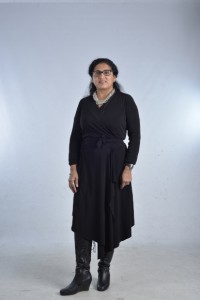 Ayesha Mall (Lecturer: Media, Language and Communication)
Ayesha Mall (Lecturer: Media, Language and Communication)
Were you panicked when news of the virus broke in February?
I didn’t panic when the news of the virus initially broke in China and then Italy. But when it reached South Africa, I was a bit concerned and then alarmed when it spread so virulently.
How has the coronavirus affected you in your professional and personal life?
It has impacted my professional and personal life in profound ways. Like most people globally, the pandemic has confined me to my home. This has meant working remotely, mainly from my home, which has demanded of me a new realisation of how to work without being in physical proximity with my colleagues and students. I had to learn to effectively participate in online communication by way of teaching and participation in meetings. The shift also required a reorientation of my home space into a home/work space. This posed a few challenges, which I and my house mate had to negotiate around as he works from home too now.
The pandemic affected my personal life in quite sudden and unexpected ways; for instance, I had to reconfigure my home to accommodate an elder family member. All of this has called for considerable introspection about one’s privileges, needs, strengths, flaws and other personality characteristics and frailties.
How have you been dealing with the effects of the coronavirus?
I have been vigilantly sifting fact from supposition and conspiracies, and I have been observing all protocols to protect myself and those around me from the virus. This has meant an almost non-existent social life, no travel and [going] out only if essential.
What has this period taught you about yourself and life?
It has taught me the importance of patience and fortitude and to check myself from veering towards selfishness. It also taught me that I can do almost anything from the confines of my home if I have good technological connectivity. It has also reminded me that I have enough.
What do you miss the most from before the coronavirus?
I miss my freedom.
What role do you think journalism can play in fighting the coronavirus?
To report responsibly by verifying information received. To continue to expose corruption and to tell the stories of those that have the least means to tell their own stories.
Where do you see the future of media post COVID-19?
I see a future characterised by an increase in mobile journalism across spatial boundaries.
What message of encouragement would you give to your students and colleagues right now?
To live with courage and conviction.
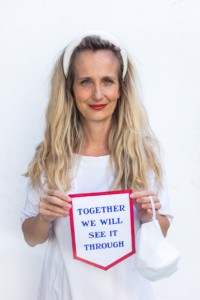 Michelle Reynolds (Lecturer: Interior Design)
Michelle Reynolds (Lecturer: Interior Design)
Were you panicked when news of the virus broke in February?
The unknown is always scary. We knew a lot less about the virus at the start. I wasn’t panicked as much as concerned for the people that I love and of course for what a pandemic meant for the world at large.
How has the coronavirus affected you in your professional and personal life?
I am sure that COVID-19 has changed us all personally and professionally. I’m grateful to the pandemic for forcing us to prioritise online learning. It’s been a refreshing and exhilarating learning curve, and it’s been encouraging seeing academics and students embracing the future in this way. That said, I miss problem solving with colleagues over a cup of tea and cake. I miss conversations around a table with students, many things really. But the creativity of motherhood and working from home, beside my garden, dogs and young family has definitely extended into my professional life, and it’s been good.
How have you been dealing with the effects of the coronavirus?
I have dealt with the effects of the COVID-19 by working hard, and by being creative. During hard lockdown, my husband and I rolled up our sleeves and got 3D printing visors for healthcare workers. At the time, there was very little PPE in the country, so it was great to be able to contribute in our small way. As a family, we wrote a list of all the things we wanted to build but hadn’t made time for, and then we made them one by one. This included a treehouse, an electric bike and a community bike park for families at the end of our road, which is a dream realised. I got stuck into an online photography course, and my husband finally got round to prototyping a robotic camera arm, both of which are keeping us honest.
What has this period taught you about yourself and life?
This time has taught me that I have all that I need in life and a whole lot to give. To make the things that matter, happen.
What do you miss the most from before the coronavirus?
Other than the sweet embrace of loved ones, what I miss most about life before COVID-19 is being carefree and “going with the flow”. I feel the pandemic has schooled us in how to “grow with the flow”. It’s been good, but intense.
What message of encouragement would you give to your students and colleagues right now?
I love these words by Fred Rogers, a muse in life and parenting.
He says “When I was a boy and I would see scary things in the news, my mother would say to me, ‘Look for the helpers. You will always find people who are helping.’”
In so many ways, the world is in such a bad way. I would encourage students and colleagues to look for the helpers, or better yet, to be them.


